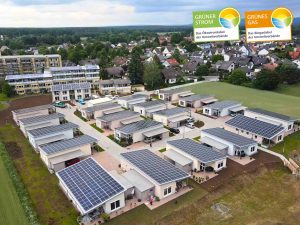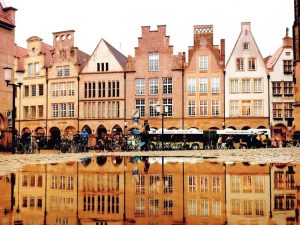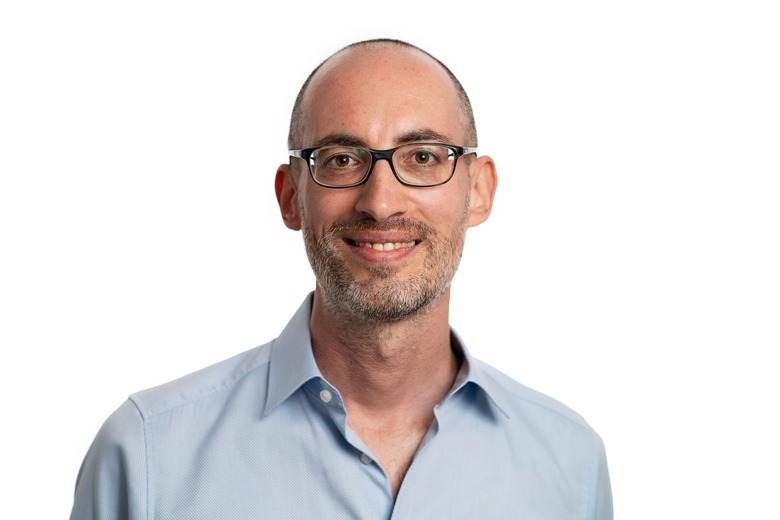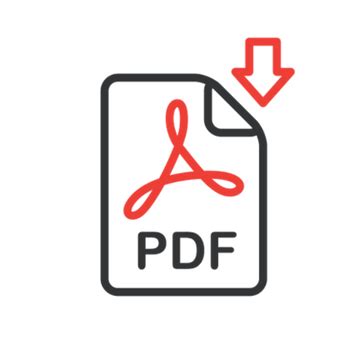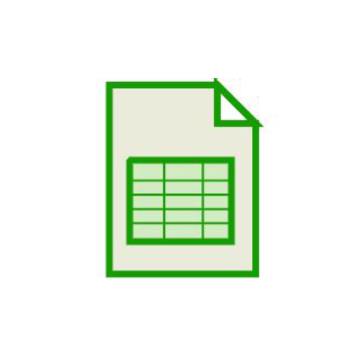For energy providers
Seal of approval with added value for your eco tariff Important information for energy providers
You would like to have the quality of your tariff checked and awarded? Then you have come to the right place!
Guarantees the expansion of renewable energies
A fixed amount per kilowatt hour flows into the expansion of renewable energies and into innovative energy transition projects - guaranteed!
Genuine green electricity & biogas with added value
Ecological energy supply guaranteed. A relabeling of nuclear and coal-fired power is excluded with us!
Supported by environmental, peace and consumer associations
Behind the seals of approval are NABU, DUH, BUND & other civil society organizations.
The Grüner Strom-Label
The Grüner Strom-Label is the only green electricity label in Germany that is supported by leading environmental associations such as NABU and BUND. It offers consumers a simple guide to the right green electricity tariff in the complex electricity market.
- 100 % genuine green electricity from renewable energy sources
- Guaranteed investments in new plants and innovative energy projects
- Recommended and supported by leading environmental and consumer associations
- Independent certification to the highest environmental standards
- First green electricity label in Germany since 1998
The Grünes Gas-Label
The Grünes Gas-Label is the only biogas label in Germany that is supported by leading environmental associations such as NABU and BUND. It offers consumers a simple guide to the right biogas tariff in the complex market for gas products.
- With real biogas, environmentally compatible and resource-saving
- Promoting the energy transition, regionally and decentrally
- Recommended and supported by leading environmental and consumer associations
- Independent certification to the highest environmental standards
- First seal of approval for biogas products in Germany

for 100 % renewable energy supply
Obtain green electricity label
GUARANTEED INVESTMENTS
Investment commitment for a cross-sectoral energy transition: With a fixed amount per kilowatt hour consumed energy turnaround projects are being implemented. Thus, a renewable energy future actually driven forward - guaranteed.
More than 80 million euros have already been published in over 1,600 ecologically valuable projects.
With a green electricity tariff with Grüner Strom-Label you support many different projects such as new green power plants, future technologies like storage and smart grids, energy efficiency measures, e-mobility, citizen energy projects, etc.
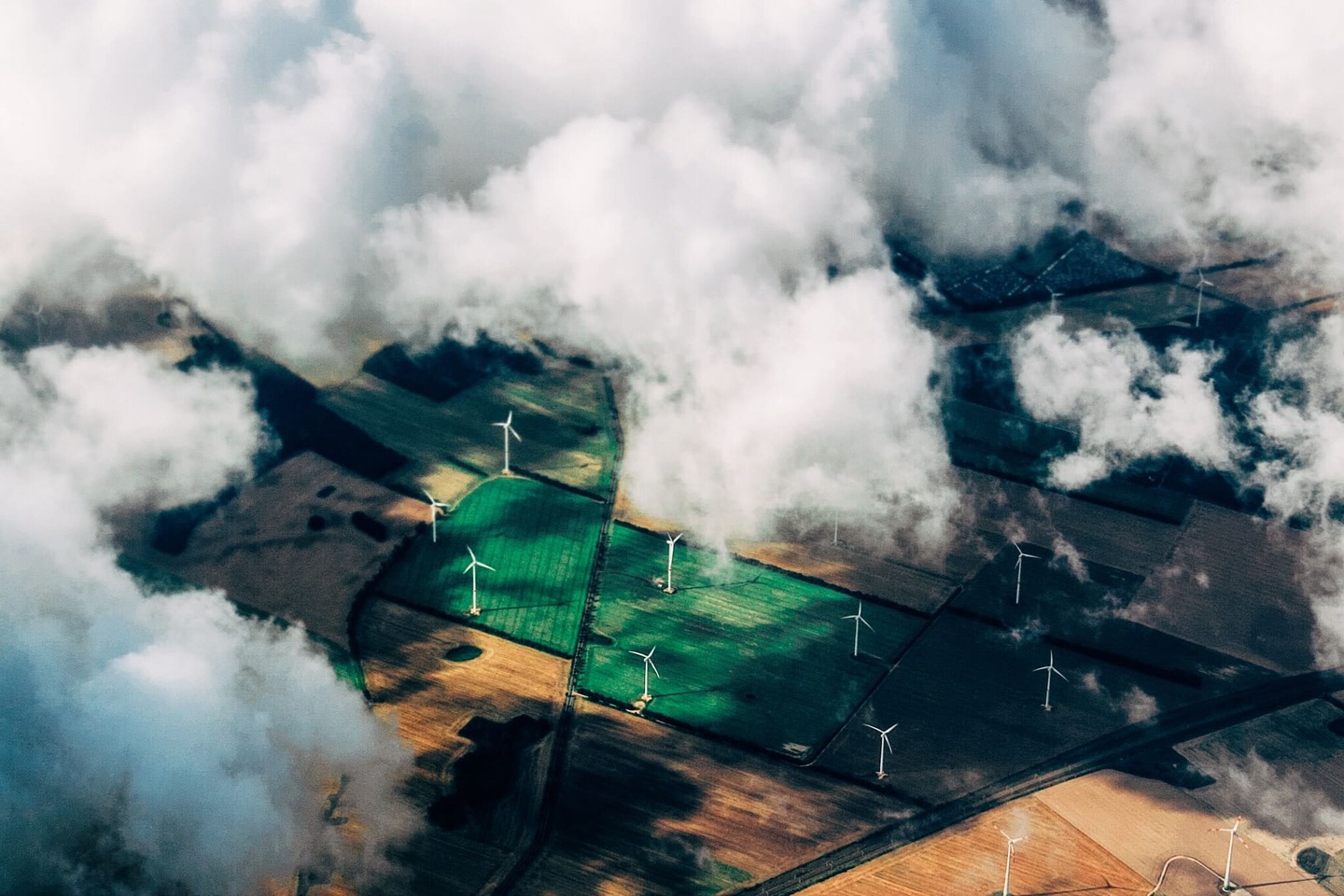
for 100 % renewable energy supply
Biogas label obtained

Energy provider
Energy providers that offer a certified electricity or gas tariff promote the expansion of eneuerable energies and innovative energy transition projects with a fixed amount per kilowatt hour consumed.
In this way, end customers and energy suppliers jointly support the energy transition: You, just through your electricity purchase, and your supplier through its promise of support.
Are you already a label holder? Then use our service portal!
Service portal
Smooth certification: In the portal we provide you with all important information and documents. If you do not yet have access, please feel free to contact us at any time.
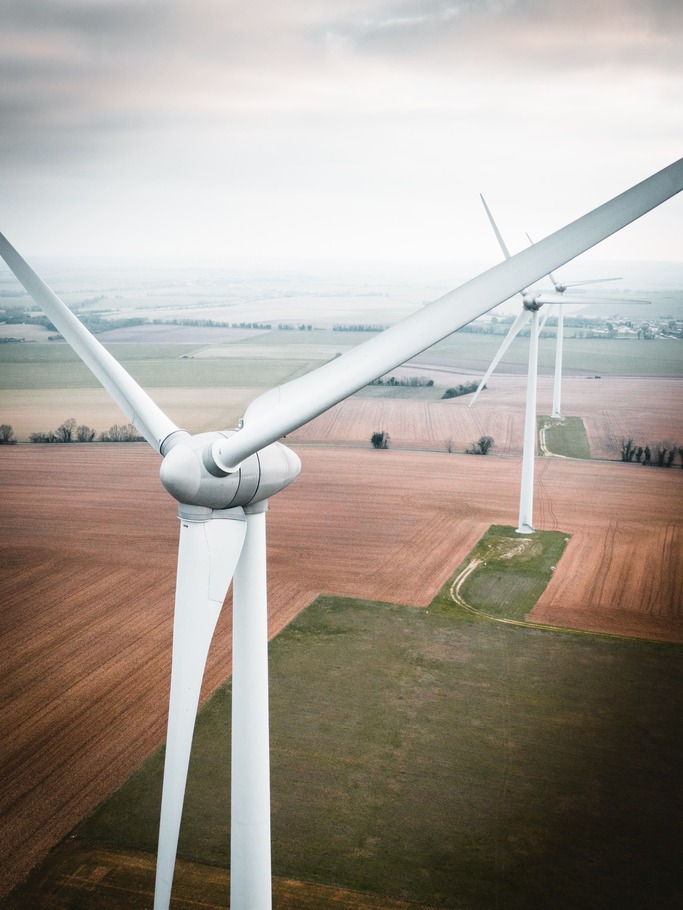
This is what we have achieved together
By choosing a certified green electricity or biogas tariff, you are directly supporting the energy transition. For every kilowatt hour consumed, a fixed amount flows into the expansion of renewable energies - that's sustainable thinking.

Switch to a certified electricity or biogas tariff now
There are already several online comparison portals for electricity and gas rates. So what's the point of another one?
At the comparison portal of the environmental associations, consumers can compare high-quality and exclusively certified green electricity and biogas tariffs.
"vergleich-dich-gruen.de" offers you the opportunity to actively participate in an energy transition that is nature-friendly, decentralized, citizen-oriented, public welfare-oriented, fair and pollutant-free through your purchase decision.
What you should know about green electricity
Grüner Strom-Label
Frequently asked questions
With Green Electricity-certified green electricity tariffs, guaranteed investments flow into the expansion of renewable energies. The level of investment is determined by a fixed amount per kilowatt hour consumed. Thus, your green power purchase indirectly influences investments in the energy transition.The funding areas include the mobility transition, energy infrastructure, energy efficiency, and other projects that serve the energy transition, such as nature conservation, development cooperation, and education.
The full range of funding opportunities can be found in the criteria catalog for the Grüner Strom-Label. Selected energy transition projects can be found here.
The Grüner Strom-Label is awarded for a green electricity tariff, not for the provider itself. The label criteria therefore relate primarily to the tariff.Thus, the Grüner Strom-Label can be found on tariffs of independent green electricity providers as well as on tariffs of municipal utilities that sell conventional electricity in addition to the certified green electricity.
Nevertheless, the Green Electricity certification also looks at aspects concerning the supplier. For example, the Grüner Strom-Label will not be granted to any company that is still directly involved in a coal-fired power plant on the cut-off date of 1.1.2027, i.e. operates a coal-fired power plant itself or is involved in an operating company with share capital/share capital. Participation in nuclear power plants is also an exclusion criterion.
In our Tariff portal of the environmental associations "vergleich-dich-gruen" You will find all tariffs and can easily switch to a real green electricity tariff with a Grüner Strom-Label.
Green Electricity
Green electricity is electrical energy that comes from renewable sources. It can be generated from solar radiation, wind and water power, biomass, geothermal energy or sewage gas. Electricity from renewable sources is ecologically and socially sound because it protects the climate and reduces the consumption of fossil, finite resources. In addition, it does not produce hazardous waste, such as radioactive waste from nuclear power plants. When you buy green electricity, it doesn't mean that green electricity is actually coming out of the pipe. Every kilowatt hour generated flows into an electricity lake, from which it is then redistributed to end customers. In other words, everyone gets the same physical electricity. But every single green electricity customer helps to make the electricity lake ever greener. However, green electricity does not automatically promote the energy transition. For this, additional investments must be made in the expansion of renewable energies. This is guaranteed by tariffs that carry the Green Electricity label. - -
Electricity from renewable energies is ecologically and socially acceptable because it protects the climate and the environment. Consumption of fossil, finite resources reduced is produced. In addition, no hazardous waste is produced, such as radioactive waste from nuclear power plants.
When you buy green electricity, this does not mean that green electricity actually comes out of the line. Every kilowatt hour generated flows into a Stromseefrom which it is then redistributed to the end customers. In other words, everyone receives the same physical electricity. But every single green electricity customer helps to make the electricity lake ever greener.
- - -
The numerous green electricity tariffsavailable on the energy market differ significantly from one another.
The crucial point with a green electricity tariff is whether consumers are choosing a green electricity tariff with their purchase decision. . . environmentally compatible expansion of renewable energies is subsidized. This is not the case with many green electricity offers.
It is important to make the electricity mix greener, Incentives for the expansion of renewable energies This is where the Grüner Strom-Label comes in: if you choose a tariff that has been awarded our seal of approval, you can be sure that every kilowatt hour you consume will go towards the expansion of renewable energies. The guaranteed investments in the environmentally compatible expansion of renewable energies are an essential Distinguishing feature compared to many other green electricity labels and green electricity tariffs.
Green electricity tariffs for private customers require an investment of at least 0.5 cents per kilowatt hour. Many energy providers also invest more than 0.5 cents per kilowatt hour.
. tariff portal of the environmental associations for switching energy providers. .
For trade customers, the Subsidy contribution are lower due to the higher consumption values: they range from 0.1 cents to 0.4 cents per kilowatt hour.
Yes. Green electricity tariffs do not necessarily have to bear a label. Certification by the Grüner Strom-Label or other seals of approval is voluntary. There are electricity providers who do not have their tariffs independently verified at all. Here, consumers must decide for themselves how credible the offer is.
In addition, it is not the energy providers that are certified, but only the individual tariffs. You can find more information about our certification here.
What you should know about biogas
Grünes Gas-Label
Frequently asked questions
With Green Gas-certified tariffs, guaranteed investments flow into the expansion of renewable energies.
The level of investment is determined by a fixed amount per kilowatt hour consumed. Thus, your gas purchase indirectly influences the investments in the energy transition. The areas of support include the mobility transition, energy infrastructure, energy efficiency, and other projects that serve the energy transition, such as nature conservation, development cooperation, and education.
You can find the whole range in the criteria catalog for the Grünes Gas-Label.
Find out which suppliers offer gas tariffs with the Grünes Gas-Labelor contact your supplier and ask about a biogas tariff with the Grünes Gas-Label. Select a labeled tariff and sign the supply contract of the new supplier. The rest is similar to the electricity switch: The new gas supplier cancels the old contract for you at the next possible date and initiates everything else. Until the transfer, the local or previous supplier is obliged to maintain the gas supply. This means that there will be no interruption in supply.
You can find gas tariffs with the Grünes Gas-Label here.
Note: Individual, named biogas tariffs are always certified, not the supplier itself.
The Grünes Gas-Label is the only biogas seal of approval that is supported by leading civil society organizations. The supporting organizations are here .
Through the work of the carrier associations in the board of directors and general meeting, they play a major role in shaping the certification to this day. Changes in the label's criteria, for example, must be approved by all the sponsoring associations.
The Grünes Gas-Label is awarded by Grüner Strom Label e.V., which has been awarding the Grüner Strom-Label for green electricity tariffs since 1998.
Biogas in general
Biogas is produced by the bacterial decomposition of animal or plant substances in a biogas plant. These substances can be, for example, biogenic residues, such as the waste from the organic waste garbage can or liquid manure from agriculture. The fermentation of these substances produces, among other things, biomethane. The resulting biomethane can be used as an energy source in the same way as natural gas and can be fed into the natural gas grid, for example. There are various ways to produce biogas and not all variants are ecologically sustainable.
Substrates, also called feedstocks, are the biogenic raw materials that are introduced into a biogas plant to produce gas. Here, a rough distinction can be made between three classes:
- Biogenic residues (e.g. biowaste from the organic waste garbage can, plant residues, residues from agriculture such as harvest and slaughter waste, liquid manure, slurry and dung).
- Sewage sludge and sewage gases from wastewater treatment plants, industrial processes, or commercial production (e.g., from biogenic residues in paper recycling).
- Renewable raw materials or energy crops (e.g., corn or through-grown silphia).
The abbreviation NawaRo stands for the term renewable raw materials.
This refers to plants or plant components that originate from agricultural production and are not used as food or feed, but are used materially or energetically, e.g. for the production of biogas.
Sewage gas is a methane-containing gas produced during wastewater treatment by the digestion of sewage sludge. Sewage gas contains between 45 and 70 percent methane by volume.
As the name suggests, this is gas that is produced artificially. Gas is produced from water in an electricity-intensive process called electrolysis. This concept is called power-to-gas. In this context, people often talk about green hydrogen. Green' here means that hydrogen is produced with the help of green electricity.
A biogas plant usually consists of a fermentation tank with gas storage, the so-called fermenter, as well as a preliminary pit, a secondary fermenter and fermentation residue storage.
The fermenter, the core of a biogas plant, is filled with the substrates (e.g. NawaRo and liquid manure from the preliminary pit). In the fermenter, the actual biogas formation takes place under exclusion of sunlight and oxygen. Depending on the initial substrate, biogas can be produced by wet or dry fermentation (= digestion). In wet fermentation, a high water content in the fermentation substrate makes the mass stirrable and flowable. Dry fermentation or solid-state fermentation is carried out with stackable organic biomass without mixing. However, it is rather rare in Germany.
The substrate is heated to around 35 to 55 degrees Celsius to accelerate the methane formation process. On average, the substrate remains in a fermenter for 30 days before degassing in the secondary fermenter for another month. The resulting biogas consists of 50 to 70 percent methane, plus carbon dioxide, hydrogen and hydrogen sulfide.
Depending on the end use (on-site power generation, feeding into the natural gas grid, etc.), the biogas is further upgraded. The remaining substrate mixture from the fermenter (digestate) is then reused by farmers as high-quality fertilizer for their fields.
The production of biogas is renewable, largely CO₂-neutral, can be decentralized and occurs independently of limited fossil energy sources. This makes it more environmentally friendly than conventional energy from large-scale power plants. However, biogas production can take place in very different ways from an ecological point of view.
To guarantee a sustainable energy supply, biogas must be produced in an environmentally compatible manner. This includes both the raw materials used and their processing, as well as the logistics of the substrates and the fermentation residues.
The energetic and material use of (anyway accumulating) organic residual and waste materials is part of a sustainable use of resources.
Only certain feedstocks may be used for biogas with the Grünes Gas-Label:
- Biogenic residues (e.g. biowaste from the organic waste garbage can, plant residues, residues from agriculture such as harvest and slaughter waste, liquid manure, slurry and dung).
- Sewage sludge and sewage gases from municipal wastewater treatment plants, industrial processes, or commercial production (e.g., from biogenic residues in paper recycling).
- Renewable raw materials (e.g. maize or through-grown silphia), but only if there is an ecologically sustainable operator concept that is conducive to the energy transition.
Together for the energy turnaround
The faces behind

Eva noise
Co-Head of Green Electricity Certification, Green Gas Certification Officer

Nina Cernohorsky
Co-Head of Green Electricity Certification, Green Gas Certification Officer

Christian Knops
Green Gas Certification Manager

Melanie Alberts
Head of Communication & Marketing
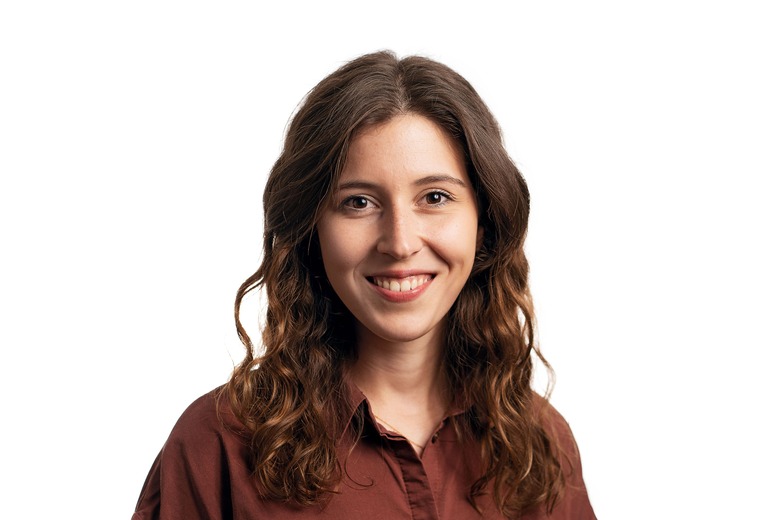
Michelle Markwart
Management Consultant, Online Communication

Antonia Schelnberger
Speaker Green Power Certification
- +49 (0) 228 / 522 611 92
- a.schelnberger@gruenerstromlabel.de

Andrea Kerkmann
Consultant Green Electricity Certification, Green Gas Certification

Lisa Bornholdt
Consultant energy consulting

Antonia Drixelius
Working student
Assistant to the management
- +49 (0) 176 / 735 632 89
- a.drixelius@gruenerstromlabel.de
Stay up to date
Sign up for our newsletter
Grüner Strom Label e.V. | Kaiserstrasse 113 | 53113 Bonn | Germany
Tel: +49 (0)228 / 522 611-90 | E-Mail: info@gruenerstromlabel.de
